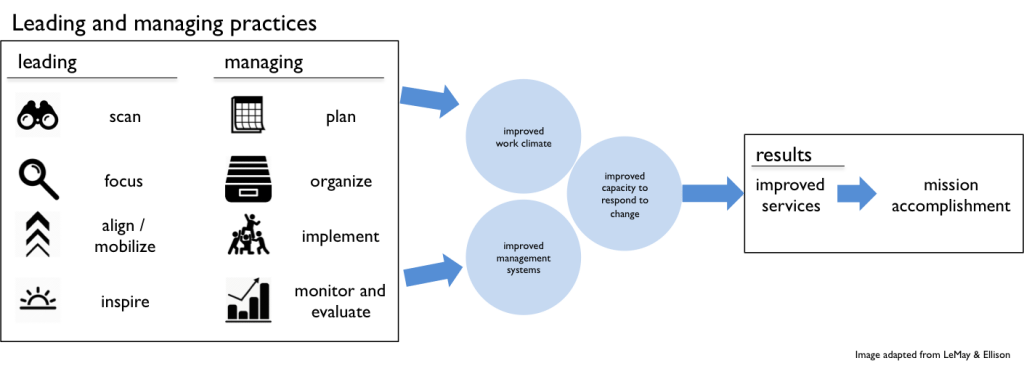 “Become the kind of leader that people would follow voluntarily; even if you had no title or position.”
“Become the kind of leader that people would follow voluntarily; even if you had no title or position.”
Brian Tracy
When one talks about being successful at leading people and resources, they really mean being effective. It’s impossible to have one without the other. So the natural question arises; how do you truly know if your leadership is effective? In most organizations the answer comes down to bottom line measures: is the work that needs to get done getting done?
There are, however, plenty of organizations where the work does get done, but the leadership is lacking. Many of us have worked for leaders who were focused on accomplishing the mission at the expense of his people. This may be efficient, but it’s not effective. Thosewho are well versed in what leadership entails, know that using others to get to the end goal is a short term tactic.
To be truly effective, we need to harness the four components of leadership effectiveness.
Delivering Success Through Leadership
Effective leadership is critical for every organization and program. Even though an organization has technically competent professionals, adequate facilities, supplies and well organized programs, doesn’t mean that organization will be effective in fulfilling its goals. To do thisrequires people in leadership positions who are effective.
A conceptual methodology that can help organizations develop leadership effectiveness comes from the work of Nancy LeMay and Alison Ellis, of the Monitoring, Evaluation and Communications in the Leadership, Management and Sustainability (LMS) Program at Management Sciences for Health (MSH). Their work was based on observations and trial studies of various U.S. Agency for International Development (USAID) programs.
What they uncovered were four components of leadership, which were contributing factors in the effectiveness of programs, guiding work teams, and ultimately, client satisfaction and mission accomplishment.
The four components are:
- Scanning. The leader surveys an organization’s business horizon, the political environment, overall industry and economic environments, to provide valid and relevant information for their team to act on.
- Focusing. The leader identifies priority challenges to be addressed within a defined time and selected measurable actions that address barriers to achieving results.
- Aligning and Mobilizing. The leader’s responsibilities and resources are internally aligned and his/her team’s goals are externally aligned in order to address selected challenges and meet stated objectives.
- Inspiring. The leader, and hence his team, is committed to the organization’s mission, to continuous learning, improvement and innovation.
LeMay’s and Ellis’ research revealed that leaders who applied these four components in their leadership, generated better work climates and overall employee satisfaction (to include ability to handle organizational change), than those who did not. This also led to an increased ability to meet client expectations and mission accomplishment.
The take-away for all of us?
Scanning: Are you assessing your organization’s environment to include the economic, political, and inter/intra-organizational dynamics to provide your team with intelligence they can use to make effective decisions?
Focusing: Are you setting a vision for your team and supporting this with SMART goals that fulfill not only your needs, but those of your boss and his boss also?
Aligning and Mobilizing: Are you putting in place the resources which enable both you, and your team to effectively execute the goals you’ve set?
Inspiring: are you committed to your organization? If you are not, then how can your team be? Being fully committed to your organization’s vision (or your own, if you are self-employed) is essential to success on any mission. Next comes a commitment to continual learning. In the words of Lou Holtz: “In this world you’re either growing or you’re dying so get in motion and grow.”

